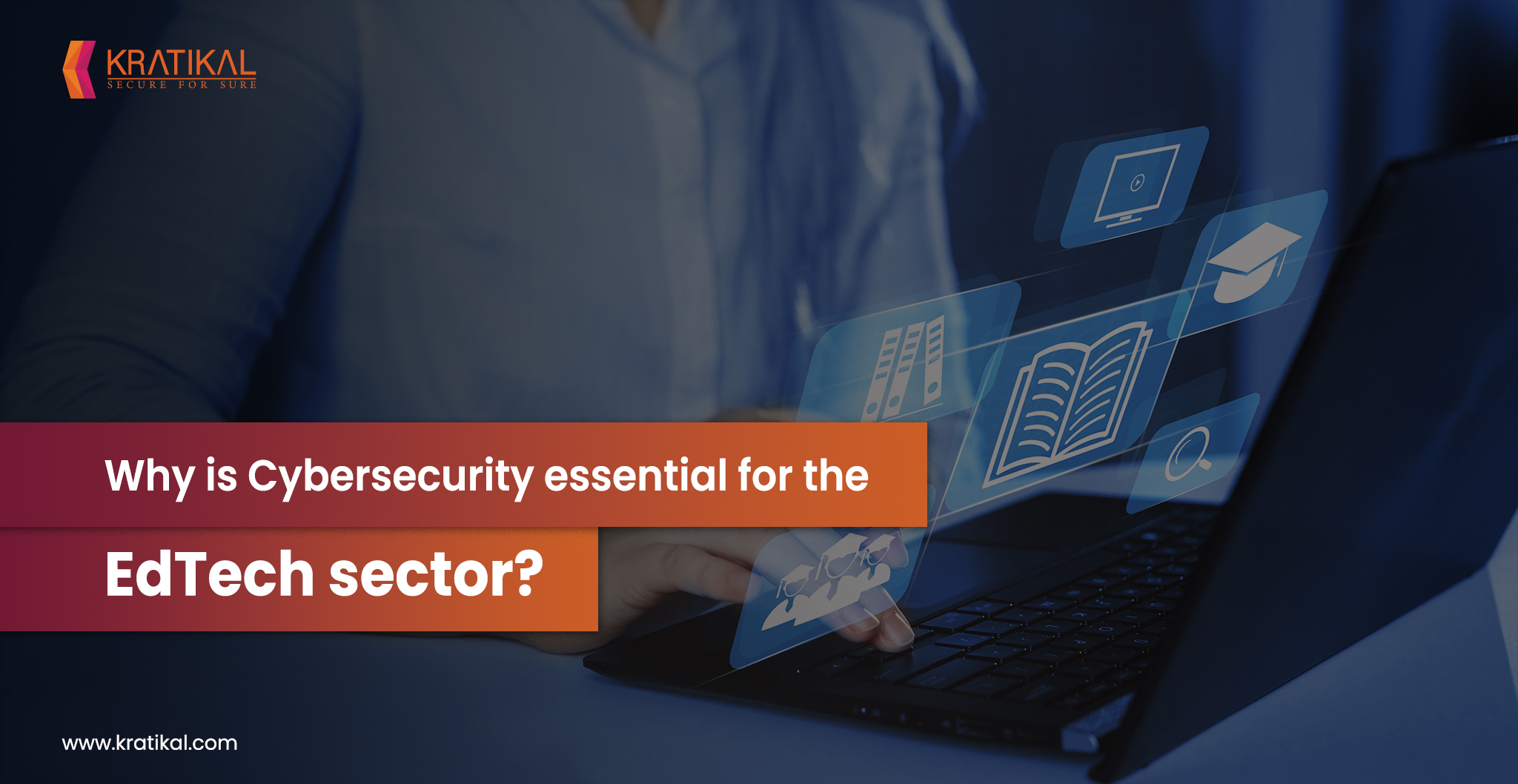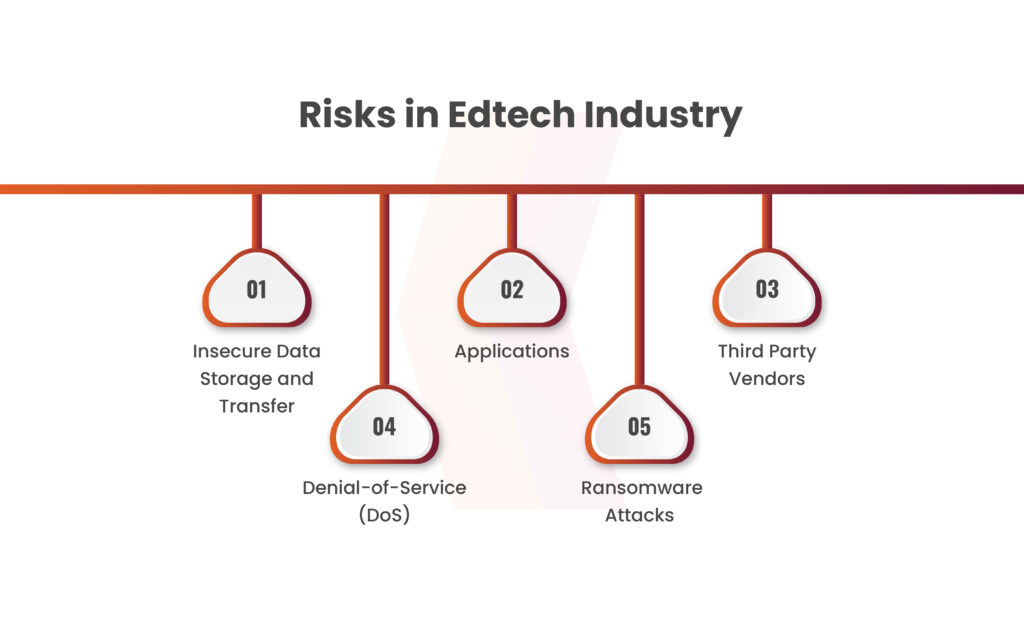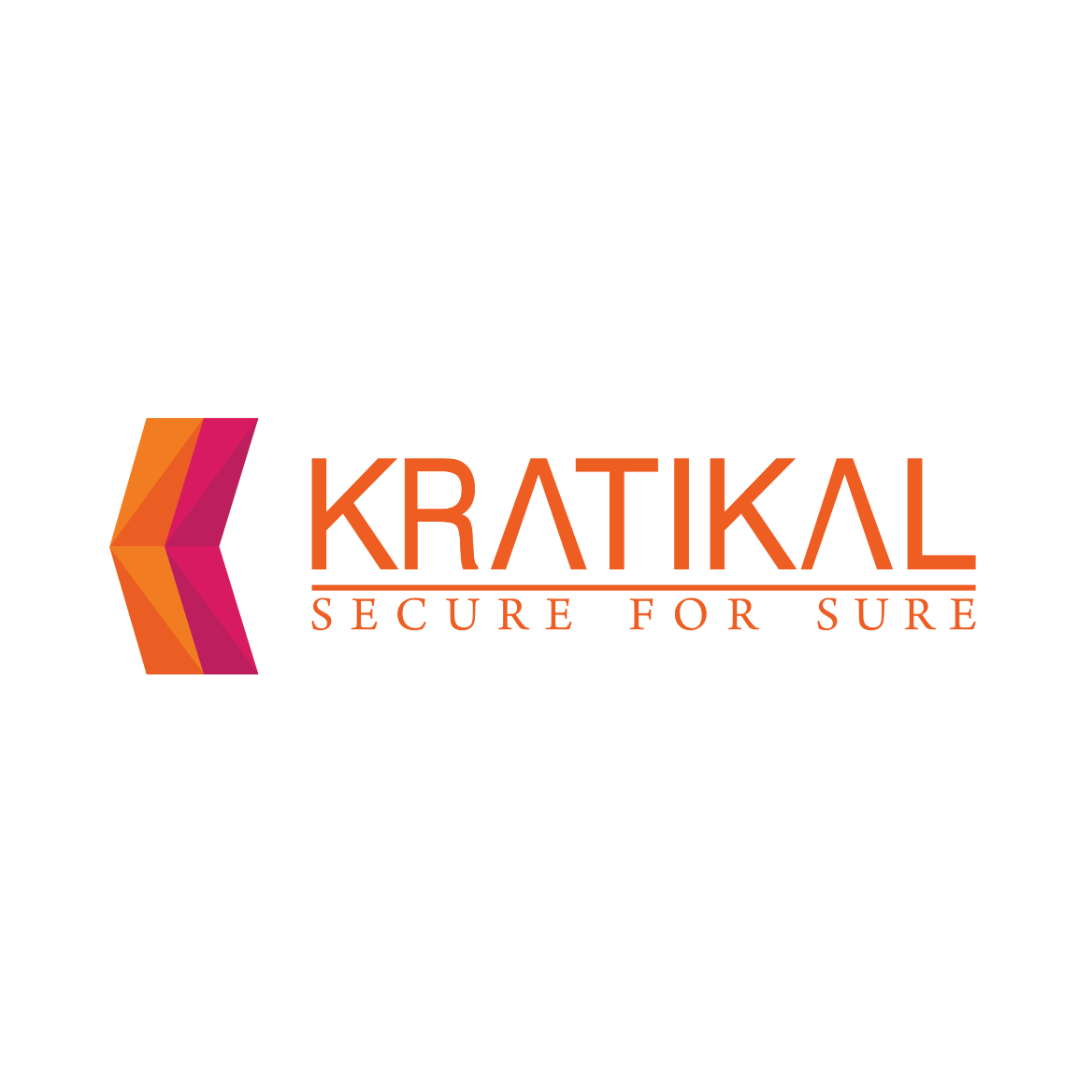
As educational technology (edtech) industries gets better, it changes the way how students learn. But now, keeping student information safe is a big worry. People like parents and teachers are really concerned, especially because some edtech platforms have had data leaks. This shows how important it is to have strong cybersecurity rules to protect student data. In the world of edtech, it’s both exciting and challenging to keep sensitive information safe. However, developers are working hard to make sure student data stays secure in this new age of educational technology. In this blog, we will learn about why edtech industries need cybersecurity.
Table of Content
Challenges in Edtech Industry
In an age where data breaches and security vulnerabilities are uncontrolled, educational institutions and the educational technology (EdTech) companies supporting them are confronted with concerns surrounding student information privacy. These cybersecurity risks have escalated to the extent that an executive order was recently issued to strengthen security measures across organizations serving the federal government, including EdTech providers with government contracts.
EdTech platforms house a vast array of student data, ranging from contact details and academic records to health information. This sensitive private information is vulnerable to capacity risks in the absence of adequate security measures. Even though there are risks associated with them, such as malware, phishing, and denial-of-service attacks, which have become regular, they frequently garner significant media attention.
The incidents outlined below serve as mere examples of the broader cybersecurity in edtech challenges faced by the EdTech industries.
- A data breach that affected around 13,000 faculty and university accounts and exposed millions of sensitive student statistics occurred at Pearson Education in July 2019.
- A country of emergency was declared by the governor of Louisiana in 2019 as a result of cyberattacks that targeted a few government servers. Due to the inaccessibility of the data, this caused significant disruptions for college districts around the state.
- The most significant faculty district in New Mexico experienced a ransomware attack in January 2022, which forced a two-day faculty day shutdown.
Security breaches pose significant risks for EdTech industries. Failure to comply with education privacy regulations can lead to legal liability for their school partners and the companies. Moreover, the loss of trust from users and partner organizations can have severe repercussions on a company’s future prospects.
Why do Organizations ensure that their Edtech Security is Up to Date?
Understanding the unique risks of schools and EdTech industries handling personal information is crucial. Taking proactive measures to mitigate these risks builds trust with educational institutions, students, and their families. Below are the few risks:
Insecure Data Storage and Transfer
In EdTech, large amounts of data necessitate storage and transfer between various locations or systems. Consequently, this exposes your company to the risk of data leaks and losses due to carelessness or malicious attacks.
Applications
EdTech applications, similar to all other applications, face vulnerabilities to malware and phishing attempts intended to extract sensitive information.
Third Party Vendors
EdTech industries frequently act as third-party providers to schools, which bear the responsibility for overseeing how their vendors manage personal data. When third-party vendors misuse student data, colleges face consequences.
Research indicates that third party providers are used in 70% of security incidents.
Denial-of-Service (DoS) and Ransomware Attacks
Denial of service (DoS) attacks flood a system with data, preventing anyone from accessing the databases or organizational structures of your firm. However, ransomware is a specific kind of malware that preys on its victims and demands money from them.

Cybersecurity Standards for Edtech Companies
There is a multitude of risks for companies catering to schools to contemplate, alongside an extensive array of legislative requirements that schools must adhere to. However, EdTech companies need not pioneer cybersecurity efforts alone. Industry standards like SOC 2, ISO 27001, and HIPAA are applicable to EdTech and readily accessible.
- SOC 2 serves as a method for organizations to exhibit their implementation of sufficient security measures geared towards preventing security breaches. Attaining SOC 2 compliance allows EdTech groups to illustrate to ability faculty customers that they have undertaken needful measures to protect student facts.
- Another well-known standard that is important to EdTech businesses is ISO 27001. This framework is an international standard for managing records in an information security management system (ISMS). For nearly ten years, ISO 27001 has been in use, and it has undergone recurring updates to meet changing market demands. In conjunction with GDPR, ISO 27701 is anticipated to have a significant impact on EdTech protection in the upcoming years.
- The Health Insurance Portability and Accountability Act, or HIPAA, applies to any EdTech company that handles private health data. Groups can store confidential documents, such as information about intellectual needs, allergies, clinical problems, and coverage details, inside the education area.
Conclusion
In EdTech, the blend of innovation and data privacy presents a challenging landscape to navigate. As EdTech platforms transform learning systems, ensuring student privacy becomes a major concern. Building confidence with educational institutions, parents, and students requires EdTech companies to adhere to regulatory standards. Despite ongoing cybersecurity concerns, edtech developers are continuously developing safety measures to protect sensitive data.
Kratikal, a CERT-In empanelled auditor, specializes in enhancing risk awareness. Our VAPT services combine manual and automated techniques to thoroughly identify and assess vulnerabilities in your IT infrastructure. Additionally, Kratikal provides thorough security auditing services to ensure compliance including ISO/IEC 27001, GDPR, PCI DSS, and more, enabling your business to fulfill legal obligations set forth by governments worldwide.

